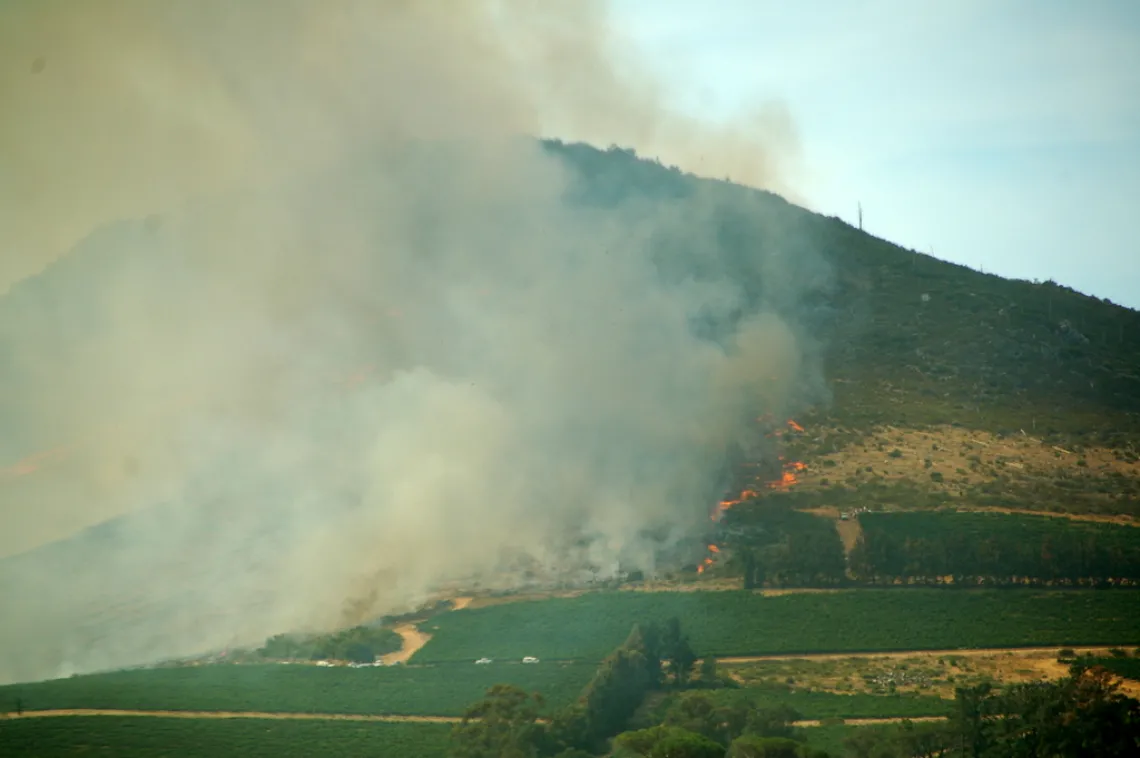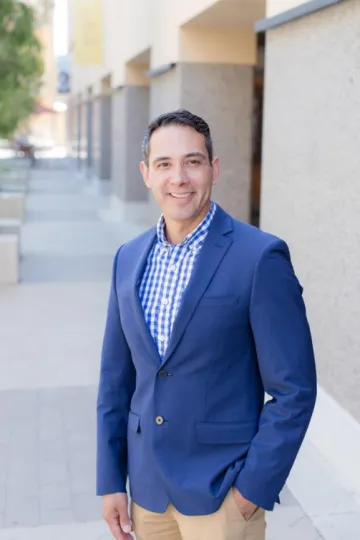A School of Landscape Architecture and School of Geography, Development & Environment Lecture Series Event

When
As climate change advances, communities across the United States are adapting to the increased threat of wildfires. Such disasters are expected to become more frequent and severe. In this lecture, Dr. Méndez explores why it is crucial to understand how these events amplify existing inequalities, and how to lessen the resulting harms, in particular for the most stigmatized populations, such as undocumented Latino/a and Indigenous migrants.
This lecture series event is co-sponsored by the School of Landscape Architecture and Planning and the School of Geography, Development & Environment.
Preregistration for the Zoom session is not required. Click the button below to join the session and enter the passcode SGDE before the lecture starts.
Refreshments will be served at 4:00 p.m. following the lecture.
About Michael Méndez

Dr. Michael Méndez is an assistant professor of environmental policy and planning at the University of California, Irvine, an Andrew Carnegie Fellow, and Visiting Scientist at the National Center for Atmospheric Research (NCAR). He previously was the inaugural James and Mary Pinchot Faculty Fellow in Sustainability Studies and Associate Research Scientists at the Yale School of the Environment. Michael has more than a decade of senior-level experience in the public and private sectors, where he consulted and actively engaged in the policymaking process. This included working for the California State Legislature as a senior consultant, lobbyist, a member of the California State Mining & Geology Board, and as vice chair of the Sacramento City Planning Commission. In 2021, California Governor Gavin Newsom appointed Dr. Méndez to the Los Angeles Regional Water Quality Control Board. The board regulates water quality in a region of 11 million people.
During his time as a scholar, he has contributed to state and national research policy initiatives, including serving as an advisor to a California Air Resources Board member, and as a coauthor of the U.S. Global Change Research Program’s study on “Climate Vulnerability and Social Science Perspectives.” Michael is a member of the National Academies of Sciences, Engineering, and Medicine's Board on Environmental Change and Society (BECS), a coauthor for the forthcoming National Academies of Sciences’ consensus study, "Accelerating Decarbonization in the United States: Technology, Policy, and Societal Dimensions," and a coauthor of the upcoming National Climate Assessment (NCA5), the U.S. Government's premier report on climate change impacts, risks, and adaptation across the Nation (a Congressionally mandated, interagency effort).
Dr. Méndez holds three degrees in environmental planning and policy, including a PhD from UC Berkeley's Department of City and Regional Planning, and a graduate degree from MIT. His research on the intersection of climate change and communities of color has been featured in national publications including National Geographic, Los Angeles Times, Politico, NPR, Bloomberg News, USA Today; and Fox Latino News. His new award-winning book “Climate Change from the Streets,” published through Yale University Press (2020), is an urgent and timely story of the contentious politics of incorporating environmental justice into global climate change policy. The book was the winner of the Harold and Margaret Sprout Award, sponsored by the International Studies Association (ISA), and a finalist for the Association of Collegiate Schools of Planning’s John Friedmann Book Award.
Dr. Méndez's new research focuses on climate-induced disasters and social vulnerability. This research has been supported by a National Science Foundation (NSF) Early Career Faculty Award. In conjunction with the National Center for Atmospheric Research (NCAR), this project explores the disparate impacts of extreme wildfire, heatwave, and drought events on undocumented Latina/o and Indigenous migrants. Méndez was also bestowed with the prestigious 2022 Andrew Carnegie Fellowship, which provides research funding to "exceptional scholars, journalists, and public intellectuals" with a capacity of "communicating findings to a broad audience."
Header image courtesy Robert Wallace, Flickr (CC BY-NC-ND 2.0 DEED).
